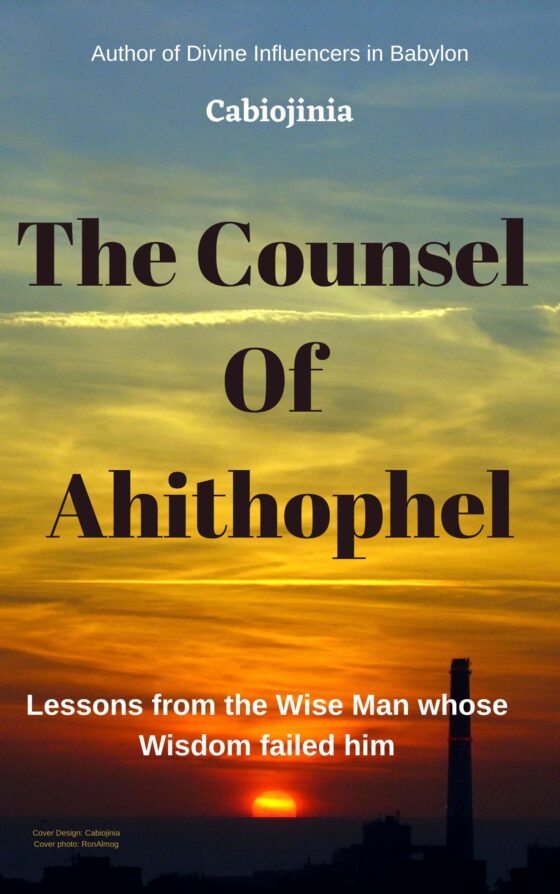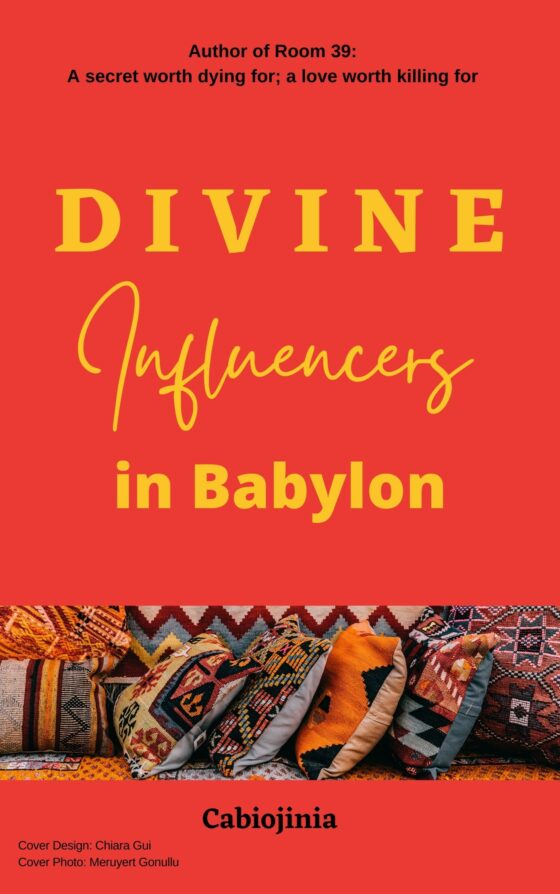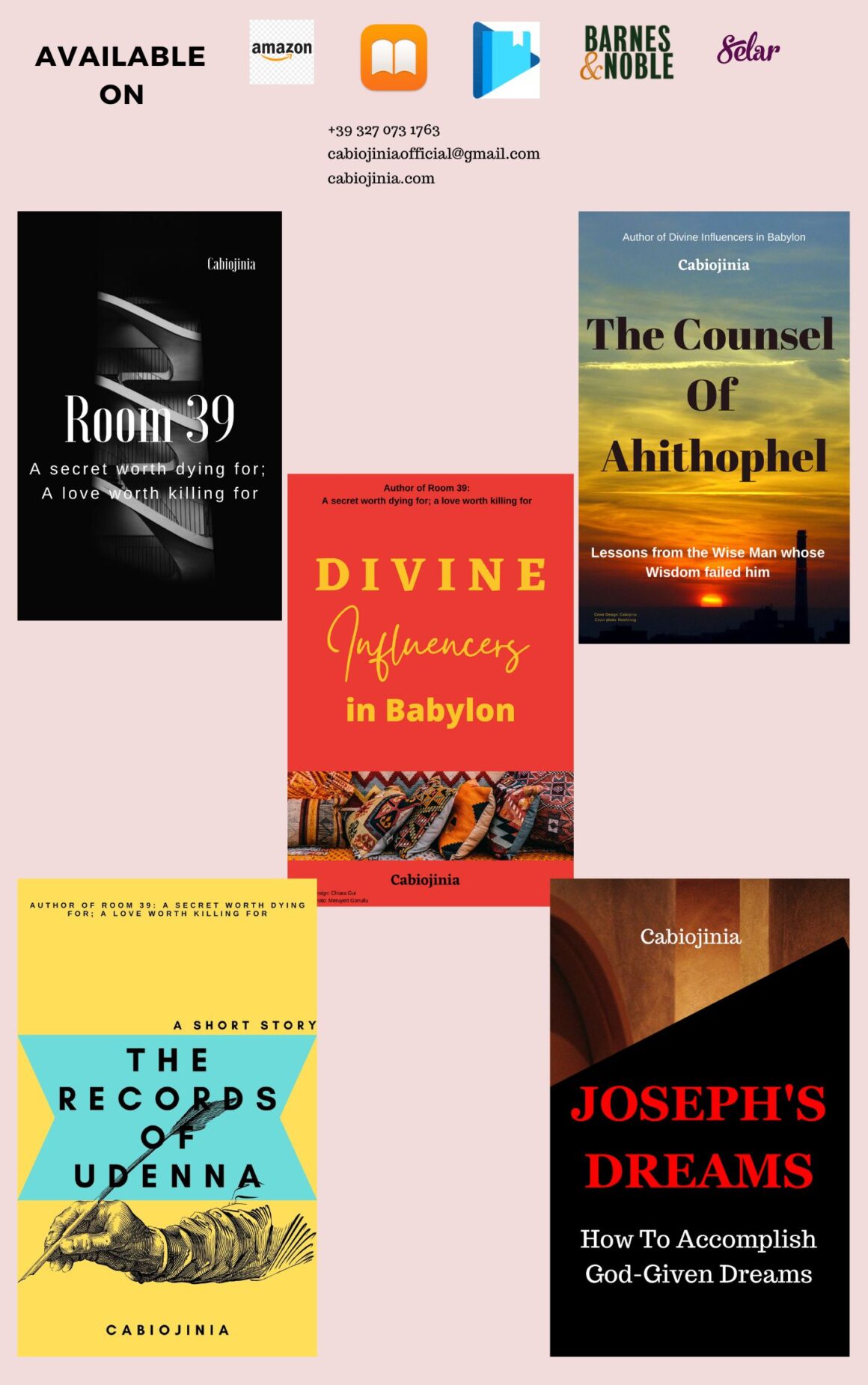In the remote village of Duoiji lived an industrious farmer with his family. An exemplary family that was loved by most, as the villagers would testify. Emeka and Adanna had three sons whom they cherished so much and trained in the craft they practised – farming yam. Unfortunately, Emeka lost his wife to ill health some years ago, and life has not been easy. However, he managed to raise the children the much he knew how, playing the role his late wife had played until her demise.
As the three sons grew, Emeka observed that his children were constantly feuding. Individually they knew various aspects of farming, and he always admired their strengths. But because of their constant fights, the three sons often accomplished little whenever they went to the farmland alone.
Emeka was getting old and was afraid that his farming business would collapse at his demise; he could sense his competitors and enemies in the neighbourhood grinning teeth to teeth at the perception of his dwindling health condition and throwing parties at the news of his death. Worse still, he believed that his spirit would not rest in peace if his children fail to sheath their swords to work together while he was still alive. He understands that the loss of their mother had created some cracks in their relationship too, but he was determined to mend those cracks before returning to the dust and his Maker.
One early morning, he woke his children up and asked them to be ready to go to the farmland with him. It was normal to ask them to accompany him, but they were reluctant because of his health status. After so much, Papa, don’t go with us. We will go alone and get the job done, they all agreed to go together, seeing that their father wasn’t ready to back down. Unsuspecting about their father’s real motive, they all left for the farm, one with a hoe, the other with a cutlass and the last with a shovel.
When they got to the farmland, they all quickly began to work with their tools, each trying to impress their ailing father. It didn’t take long until their quarrelsome attitude began to manifest. Dubem, the eldest son, wanted to cut a stump with his hoe, but as he landed the blade on the stump, a lump of earth flew and spattered over the chest of his younger brother. The younger brother, Bimbo wasn’t happy and demanded that the eldest apologise before he would let go. Dubem wasn’t having it but retorted that it was involuntary action, so required no apologies to settle. It did not take a minute before the verbal fight progressed to physical combat. What their father had feared to see, his severest heartache was right before him.
As he observed the disrespect going on and heard the constant call of his name from his last son, his heart was weighty, paralysed by thoughts and predictions of what could be in a few years from now when he would have bid this earth farewell.
However, he knew it was a perfect time to share a salient illustration he had prepared. That was why he insisted on coming with them in the first place. So, he calmly called unto his sons. By this time, the two sons had stopped fighting at the realisation that their father was there, unlike the other times.
He asked the youngest son, Oyim, to reach out for his leather skin bag. As he relaxed the cord that pulled the round edges of the bag together, he took out a cord and made a simple knot. Then, he asked Oyim to untie the knot he just made. Oyim spent a few minutes and eventually succeeded in loosening it while his elder brothers watched, not knowing where this demonstration was headed.
When Oyim was done, Emeka asked for the cord back, reached out for his leather skin bag and took out another cord. It was getting interesting now for Oyim as he smiled, waiting to be asked to do it again. This time, however, his father made a knot with two cords. He rolled the cords over one another with the dexterity of a surgeon. Before he was done, Oyim was standing in front of him to loosen the finished product. His father willingly gave it to him. Oyim tried the same trick he had used for the first, but this time it seemed not to work. The more he attempted to loosen the knot, the more he entangled the other working end. His father had applied a trick his young brain could not readily decipher.
After a few minutes, his father asked the second son to attempt. Bimbo, desiring to prove to Oyim that he was a more skilled knot-loosener than him, swung into action. In the first few minutes, he was smiling as he made progress in detangling the varied meanderings of one of the working ends. But just as he pulled the last loop, the bight of one of the other cords formed loops and his entire effort was wasted. His brothers laughed at his predicament as he abandoned the ropes. The eldest son, who had been observing, stepped up to the challenge. He had seen what his younger brother did right and the final mistake he made, so within a few minutes, he dissolved the knot.
Impressed by the results, their father again reached into his bag and got another rope. Like other times, he made a knot with the three cords, but this time it was difficult to understand the meanderings of the working end of each rope. When he was done, he asked who wanted to have the honour of untangling the knot. After a minute of immobility, Dubem, his eldest son, accepted the challenge. He began his journey from one working end, but the more he tried, the more he saw that one elbow was immediately followed by another elbow intersecting with another. Each loop he pulled further complicated the equation. After struggling for a while, he abandoned the rope and went back to farming, in sadness that he could not break the knot. His father smiled in his heart while maintaining an expressionless face.
They all returned to farming, pondering why the knot seemed impossible to resolve. The younger sons returned at various points to where the knot was lying, attempting to undo it, but all to no avail.
As the sun began to set, tired from the farmwork of the day, they all went home. Along the road, each kept musing over what their father was trying to teach them. Maybe he was trying to stop Dubem and Bimbo from fighting. And he succeeded. Oyim thought to himself. He saw I was beating Bimbo and devised a means to save him, Dubem thought. Bimbo, on his part, was happy that, after all, he was not the only one who could not untie a knot; his elder brother failed too. Their father, on the other hand, kept eating his kola nut as they walked home. He knew what they were possibly thinking but waited for one of them to muster the courage to ask the two important questions – why the knot, and how does one untie the last knot?
Well, it seemed Oyim developed the courage and decided to ask. After all, he was not a part of the fight, and he undid the first knot. After having their bath and pounded yam with oha soup for dinner, Oyim raised the questions. The old man adjusted his wrapper and asked his son to get his leather bag. He took out the knot and tossed it again at Dubem, asking the others to observe as he tried to untie it. After a few failed attempts, he asked him to stop.
He then explained to them that it was nearly impossible to untie, although it was easy to tie. He purposely increased the level of difficulty to teach them a few life lessons that would outlive him.
Lessons from the Farmer’s knot
1.The first is the number of cords that I used in making the knot, he began the lessons. Numbers are vital, especially when there is a unity of intent. When you stop fighting one another and develop the same mind, the strength of your number is exponentially increased. My sons remain tied together. There must be unity in intent and purposes between you. There is a relationship between the strength of your bond and your number. Function to complement and regulate each other as opposed to setting traps on the paths of your brother. When your brother makes mistakes, be the correction that he needs. When he is running empty, make up for the deficit with your fullness.
2. The second lesson I want you to learn is regarding the state of each cord that forms the trinity. Each cord was healthy on its own, so coming together made for a stronger bond. Every one of you is a gifted son of mine. I know this because I am your father, and I have observed you daily as you grew on my palms and those of my late wife. You are very crafty with your hands, my son, Dubem, he said, pointing at the eldest. Bimbo, I have observed you, and you are very patient and consistent whenever you are engaged in a project. I saw it with how you make the mounds. You never give up in the face of any obstacle, he said, touching the back of the head of the younger. Oyim, you are special like your brothers. You are bold and very truthful. You are also a lover of peace and thrive in an environment of harmony. He concluded, referring to his youngest.
Now, all you need to do is get better in all these areas you are good at. Master your strengths, improve on them, and never allow your gifts to diminish over time. This way, when you come together, your strengths help to fortify the unity.
3. The third lesson I want to teach you is this: although the cords were individually healthy, they were not equally strong. Their sizes were not even the same, but it was not so noticeable because each cord made up for the deficiencies of the other. So, my children value each other. The extent to which you value each other is the extent to which you will be tied together. When you esteem your brother in his area of strength better than yourself, you will improve your bonding. Be interdependent, and do not be too egoistic to seek help when you know your brother is better in that area.
I would also like you to learn this fourth lesson. Of extreme importance is how the cords are tied. And this is closely related to who ties the knot. I made the knot leveraging my experience and knowledge that none of you would be able to untie it. Despite the healthy state of the individual cords, they can be dissolved easily if poorly tied. My dear sons, submit yourselves to God and allow Him to bind you. He has vast experience and knowledge that no enemy can undo the knot he ties. Let Him be the glue that bonds you inseparably. If you do these, you will enjoy peace, and none of your enemies will conquer you all the days of your life.
Those were the lessons, my children. I wish Adanna were here to add more, but let this suffice. That is all for tonight. I love you all so much. Now, you can hug me and go to sleep.
















